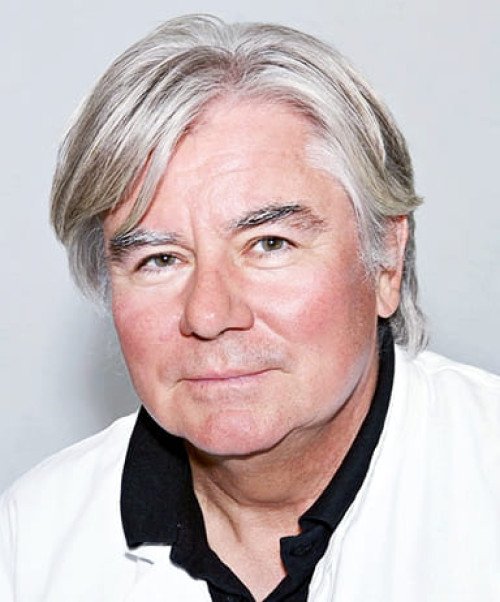What is Endocrinology?
Endocrinology is the study of the endocrine system or the network of glands that create and secrete hormones. This chemical messenger traverses the bloodstream, impacting a wide range of physiological processes, including metabolism, growth, temperament, and sexual function. Each component of the endocrine system the thyroid gland, adrenal glands, pituitary gland, pancreas, and reproductive organs is essential for the body's equilibrium.
Role of the Department of Endocrinology
The Department of Endocrinology is organized around a team of specialists who are committed to resolving the complexities of hormonal imbalances. Their knowledge encompasses a broad spectrum of conditions, such as thyroid disorders, adrenal insufficiency, diabetes, and reproductive endocrine issues.
Key Areas of Focus in Endocrinology
1. Diagnosis and Treatment of Diabetes: Diabetes is a chronic condition that interferes with the body's glucose metabolism, resulting in elevated blood sugar levels. In addition to medication management, lifestyle counseling, and diagnostic testing, the department provides comprehensive care.
They utilize sophisticated technologies, including continuous glucose monitors (CGMs), to assist patients in effectively managing their blood sugar levels. Regular follow-ups and personalized treatment plans guarantee that patients can maintain healthier lifestyles.
2. Thyroid Disorders: Regulating metabolism through hormone production, the thyroid gland is situated in the neck. Hypothyroidism (underactive thyroid) and hyperthyroidism (overactive thyroid) can disrupt this equilibrium, which can have an impact on one's energy levels, weight, and overall health.
These conditions are diagnosed by the department through a combination of blood tests, ultrasounds, and occasionally radioactive iodine absorption tests. To restore normal thyroid function, treatment typically entails hormone replacement therapy or medications.
3. Adrenal Disorders: The adrenal glands, which are situated atop the kidneys, generate hormones such as cortisol and adrenaline that regulate metabolism and stress. Specialized care is necessary for conditions such as Cushing's syndrome (excessive cortisol) and Addison's disease (adrenal insufficiency).
Diagnostic tests, such as ACTH stimulation tests and cortisol measurements, are administered by the department to ascertain adrenal function and establish adequate treatment regimens.
4. Reproductive Endocrinology: Hormones are essential for reproductive health. Reproductive endocrinology deals with conditions such as polycystic ovary syndrome (PCOS), irregular menstrual cycles, and fertility challenges. The department provides diagnostic evaluations, including imaging studies and hormone level testing, and develops personalized treatment programs to address hormonal imbalances.
5. Bone Health: The density and strength of bones are substantially influenced by hormones such as estrogen and testosterone. Brittle bones are a characteristic of conditions such as osteoporosis, which can elevate the likelihood of fractures.
Bone density scans (DEXA) and other diagnostic tools are implemented by the department to evaluate bone health and prescribe treatments such as hormone replacement therapy or bisphosphonates to both prevent and manage osteoporosis.
Latest Technologies and Treatments
Innovative medical advances are made possible by the Department of Endocrinology, which uses cutting-edge technologies to provide exact and effective care. The following are a few of the most advanced technologies and treatments:
1. Telemedicine: Endocrinology has benefited significantly from the emergence of telemedicine in conjunction with the growth of digital health. Through remote consultations, patients can now manage chronic conditions, receive follow-up care, and consult with specialists from the convenience of their homes. Improved access to care and more adaptable management of hormonal disorders are enabled by this methodology.
2. Hormone Replacement Therapy (HRT): HRT provides a method to restore hormonal balance and reduce symptoms for patients who are experiencing hormonal deficiencies, such as those who are undergoing menopause or possessing testosterone deficiencies. To assist patients in managing symptoms and enhancing their quality of life, the department offers customized HRT programs that are tailored to the unique requirements of each patient.
3. Personalised Medicine: The field of endocrinology has been transformed by the advancements in genetic research and technology. A customized treatment plan can be developed by endocrinologists through the examination of genetic markers and individual responses to treatments. This technique offers a more individualized approach to patient care by reducing the possibility of negative side effects and improving the efficiency of therapy.
4. Advanced Diagnostic Imaging: To diagnose and track conditions, endocrinology uses advanced imaging techniques. Detailed views of endocrine organs are provided by techniques such as high-resolution ultrasound, magnetic resonance imaging (MRI), and computed tomography (CT) scans, which enable specialists to accurately diagnose and plan treatments.
5. Endocrinology and Artificial Intelligence (AI): By analyzing vast amounts of patient data to foresee disease progression and treatment responses, AI is revolutionizing endocrinology. AI algorithms can improve the precision and efficacy of care by facilitating the interpretation of intricate diagnostic results and the optimization of treatment plans.
The Endocrine Team
A varied group of experts from several fields make up the Department of Endocrinology, and they all contribute their knowledge to offer complete care:
1. Endocrinologists: These specialist physicians are dedicated to the diagnosis and treatment of hormonal disorders. For the development of comprehensive treatment strategies, they employ a combination of clinical expertise, diagnostic tests, and patient history. This position entails the coordination of patient care with other healthcare providers to ensure that specific conditions are managed and that patients receive comprehensive care.
2. Nurse Practitioners: Nurse practitioners are essential to patient care, providing routine check-ups, education, and support. To ensure that patients receive consistent and personalized care, they collaborate closely with endocrinologists to assist them in navigating their treatment plans and effectively managing their conditions.
3. Dietitians: Nutrition is a critical component of the management of endocrine disorders. Meal planning, lifestyle modifications, and dietary modifications are all areas in which dietitians provide advice to promote overall health and well-being. Personalized nutrition regimens that address specific hormonal imbalances are developed in collaboration with patients.
4. Diabetes Educators: These professionals are dedicated to providing patients with the necessary knowledge and skills to effectively manage their diabetes. They assist patients in developing the ability to manage their condition and make informed health decisions by offering education on lifestyle modifications, insulin use, and blood sugar monitoring.
5. Endocrine Surgeons: Endocrine surgeons are experts in the surgical treatment of endocrine glands where surgical intervention is necessary. To determine the necessity of surgery and to provide postoperative care, they collaborate closely with endocrinologists.
👉 Contact us for further information and receive a complimentary consultation.






.webp)
 (1).webp)

.webp)
 (1).webp)


.webp)
 (1).webp)

.webp)
 (1).webp)
